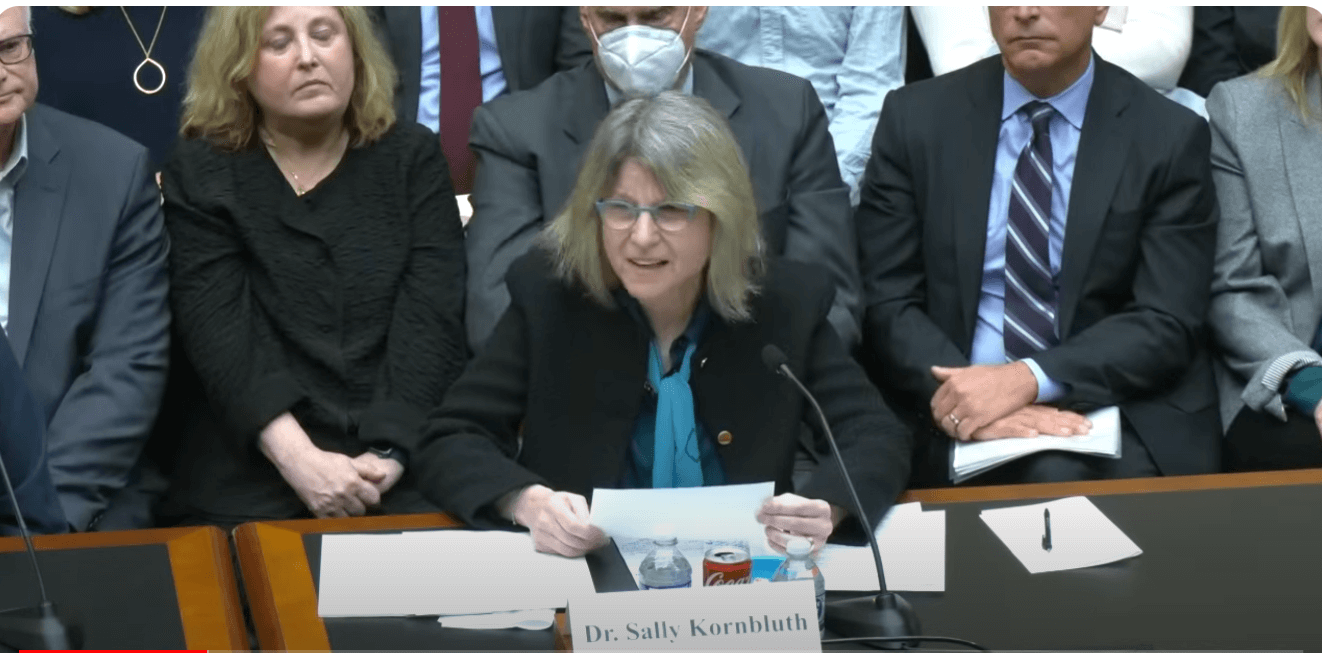Expression of opinion of the heads of the research universities in Israel regarding the statements of university presidents in the United States in Congress * The document was written before Penn State President Liz Magill announced her resignation

Since the terrible massacre of October 7, a wave of anti-Semitism and anti-Israelism has been rising on the campuses of many of the universities in the United States, including the elite universities. Instead of empathy and support for Israeli students and Jews for the terrible disaster that befell the Jewish people in their country, the campuses are abuzz with demonstrations calling for the destruction of the State of Israel ("from the river to the sea"), for terrorist activity against the citizens of Israel ("the Intifada"), and for hatred of Jews and Israelis everywhere. Jews and Israelis fear walking around campuses in the United States, speaking Hebrew, or being identified in any way based on their religion or origin. Memories of dark days in our past come back and rise.
In this reality, the importance of a firm leadership in American universities that will say: "Enough" stands out. Unfortunately, this leadership is lacking these days. Aside from a few academic leaders who condemn anti-Semitism loud and clear, and work against it as much as they can, many others remain silent. In an embarrassing hearing held in the American Congress two days ago, the presidents of three leading universities in the United States (Harvard, MIT and Pennsylvania) appeared, who were questioned as to their position on the severe displays of anti-Semitism on the campuses under their responsibility. Although the presidents condemned expressions of anti-Semitism on campuses, they insisted that a significant part of these expressions cannot be prevented due to their being covered under the protection of freedom of expression. At the climax of the debate in Congress, the presidents were asked if calling for the extermination of the Jewish people (genocide) is consistent with the code of conduct at the universities they head, and to everyone's astonishment, they found it difficult to answer simply: "No." Instead, they twisted with quasi-legal formulations, saying that it "depends on the context". Yes, that's right. The question of the legality of calling for the extermination of a nation depends on the context!
A day after the hearing, the president of Harvard University published a brief clarification that manifestations of anti-Semitism are prohibited at her institution. A similar clarification was issued by the president of the University of Pennsylvania.
The position of the presidency as reflected in their testimony in Congress, according to which expressions of anti-Semitism and calls for the extermination of a people may be protected under the protection of freedom of speech, does a terrible injustice to the American Constitution. Woe to the people whose constitution allows a call to exterminate a people in the name of freedom of speech. Woe to the nation whose constitution allows the persecution of Jews - and other minorities - in the name of freedom of expression. Freedom of speech is not absolute freedom: it retreats in the face of expressions of incitement, hatred and calls to violence. Certainly he retreated before calling for the extermination of a people. So in the United States, and so in the other democratic countries of the world.
The crushing failure of the presidency in the congressional hearing reflects the exhaustion of their hands, and that of the presidency and other presidents, in dealing with anti-Semitism and anti-Israeli acts on the various campuses in the United States. It is not enough to apologize and express regret, clear and decisive actions are required. At the hearing, the presidency detailed a number of steps that have already been taken or are about to be taken at their institutions, aimed at protecting the safety and well-being of Jews and Israelis on campuses. It is their responsibility to make sure that these steps are effective and sufficient. The burden that now rests on their shoulders is to show their students, their companies and faculty members, and in fact the entire public, that the universities they lead excel not only in research and teaching, but also in upholding universal humanist values and protecting the rights of minorities wherever they may be. Thus, everyone will know that calling for the extermination of a people is strictly prohibited at Harvard, MIT, and Pennsylvania universities, as well as anywhere else in the world.
- Prof. Aryeh Tsavan, President of Bar-Ilan University, Chairman of the RA
- Prof. Ehud Grossman, president of Ariel University in Samaria
- Prof. Daniel Haimowitz, president of Ben-Gurion University of the Negev
- Prof. Alon Chen, president of the Weizmann Institute of Science
- Prof. Asher Cohen, president of the Hebrew University in Jerusalem
- Prof. Uri Sion, president of the Technion - Israel Institute of Technology
- Prof. Ariel Porat, president of Tel Aviv University
- Prof. Leo Cory, president of the Open University
- Prof. Ron Rubin, president of Haifa University
More of the topic in Hayadan:
- The stinging failure of the presidencies of the prestigious universities in the congressional hearing reflects a lack of hands in dealing with anti-Semitism and anti-Israel acts on campuses
- How do you prevent phenomena like the Holocaust from happening again?
- Award for the most active lecturers for Israel on US campuses
- New study: "Gaza and Ukraine are separate conflicts, but conspiracy theorists try to connect them on social networks"
